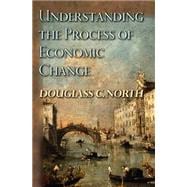
Note: Supplemental materials are not guaranteed with Rental or Used book purchases.
Purchase Benefits
What is included with this book?
| Preface | p. vii |
| An Outline of the Process of Economic Change | p. 1 |
| The Issues Involved In Understanding Economic Change | p. 9 |
| Introduction | p. 11 |
| Uncertainty in a Non-ergodic World | p. 13 |
| Belief Systems, Culture, and Cognitive Science | p. 23 |
| Consciousness and Human Intentionality | p. 38 |
| The Scaffolds Humans Erect | p. 48 |
| Taking Stock | p. 65 |
| The Road Ahead | p. 81 |
| Introduction | p. 83 |
| The Evolving Human Environment | p. 87 |
| The Sources of Order and Disorder | p. 103 |
| Getting It Right and Getting It Wrong | p. 116 |
| The Rise of the Western World | p. 127 |
| The Rise and Fall of the Soviet Union | p. 146 |
| Improving Economic Performance | p. 155 |
| Where Are We Going? 166 | |
| Bibliography | p. 171 |
| Index | p. 183 |
| Table of Contents provided by Publisher. All Rights Reserved. |
The New copy of this book will include any supplemental materials advertised. Please check the title of the book to determine if it should include any access cards, study guides, lab manuals, CDs, etc.
The Used, Rental and eBook copies of this book are not guaranteed to include any supplemental materials. Typically, only the book itself is included. This is true even if the title states it includes any access cards, study guides, lab manuals, CDs, etc.